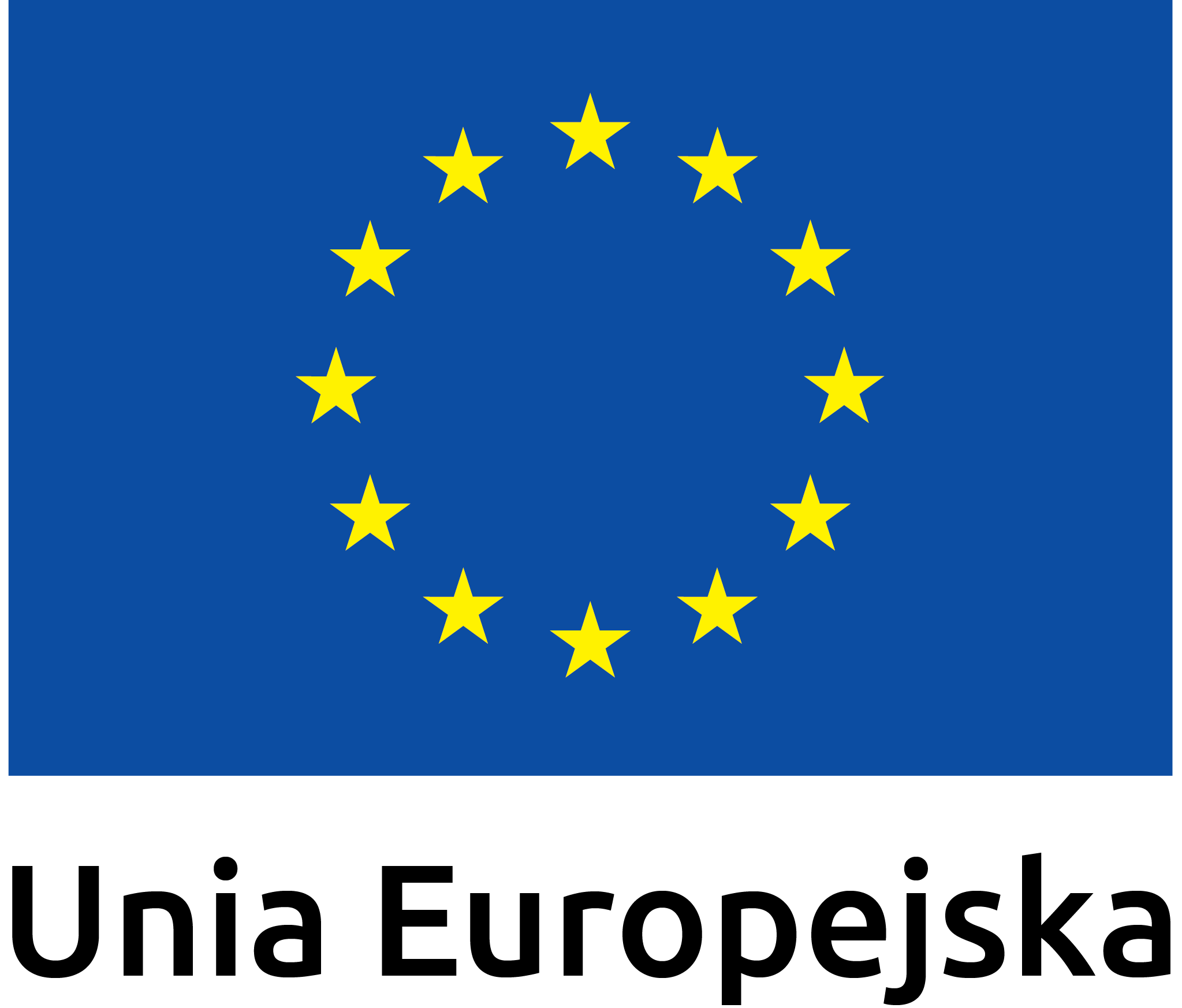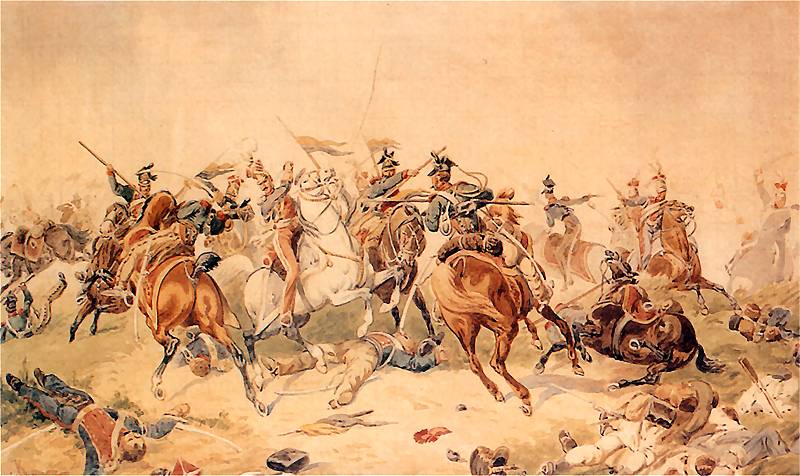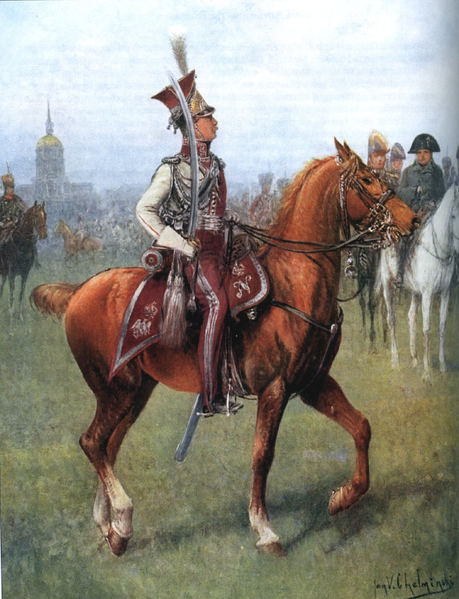Marcin Fiutowski – cavalry soldier, officer of the Legion of Honor
He was born on November 9, 1778 in Gostwica - the son of Maciej and Salomea née Borkiewicz (nephew of the Stary Sącz parish priest of the same name, who contributed to the founding of a school in Stary Sącz in 1789 in the parish church of St. Elizabeth of Hungary). Several authors mentioned the turbulent life of the Gostwice resident. Henryk Mościcki wrote that: "On May 20, 1807, he joined the light horse regiment of the Napoleonic Guard and took part in the [Spanish] campaign of 1807" (Polish Biographical Dictionary).
In turn, Robert Bielecki, author of the Biographical Dictionary of Officers of the November Uprising and the book Chevalegers of the Guard, mentioned that he carried out the following campaigns: Wagram, Witebsk, Możajsk, Berezina, Lützen, Bautzen, Dresden, Leipzig, Hanau, Brienne-le-Château, Montmirail, Chateau-Thierry, Laon, Arcis-sur-Aube. In 1813 he received the Legion of Honor, and a year later the officer's cross of the Legion. Another concise biography reads: "Campaigns: 1808 and 1810–1811 Spain, 1809 Austria, 1812 Russia, 1813 Germany, 1814 France, 1815 Elba and Sto Dni" (M. Karpowicz, M. Filipiak, Elite of Polish Riding, Warsaw 1995). After Napoleon's abdication, he stayed with the ex-emperor under the orders of Jan Paweł Jerzmanowski on Elba. In 1815, during the so-called "100 Days of Napoleon", participant of the struggles at Ligny and Waterloo.
In turn, Robert Bielecki, author of the Biographical Dictionary of Officers of the November Uprising and the book Chevalegers of the Guard, mentioned that he carried out the following campaigns: Wagram, Witebsk, Możajsk, Berezina, Lützen, Bautzen, Dresden, Leipzig, Hanau, Brienne-le-Château, Montmirail, Chateau-Thierry, Laon, Arcis-sur-Aube. In 1813 he received the Legion of Honor, and a year later the officer's cross of the Legion. Another concise biography reads: "Campaigns: 1808 and 1810–1811 Spain, 1809 Austria, 1812 Russia, 1813 Germany, 1814 France, 1815 Elba and Sto Dni" (M. Karpowicz, M. Filipiak, Elite of Polish Riding, Warsaw 1995). After Napoleon's abdication, he stayed with the ex-emperor under the orders of Jan Paweł Jerzmanowski on Elba. In 1815, during the so-called "100 Days of Napoleon", participant of the struggles at Ligny and Waterloo.
Marcin Fiutowski's boundless admiration for Napoleon and his desire to accompany the beloved leader in exile on Elba are evidenced by his correspondence to his brother, including the words: "with my husband [i.e. "Napoleon] whom consciousness does not know and the future will not be able to understand, with the Man to whom I once swore, in whose heroic deeds I was a participant, with the Man to whom I want to be faithful to the last moment, I have undertaken a fate to share forever." In a later letter from Paris (September 24, 1815), we learn about other motives for the loyalty of the Nowy Sącz priest: 'Having just returned from the island [Elba], the new abdication deprived me of everything. In this bottomless misfortune, don't think that I have completely lost everything: my honor is saved, people's respect is guaranteed forever, and if you value rank for something, I am the squadron leader [...] and an officer of the Legion of Honor... (quoted in: M. Karpowicz, M. Filipiak, Elite of the Polish Cavalry...).
In the fall of 1815, Marcin Fiutowski returned to the country. Initially, he served in the army of the Kingdom of Poland, then managed the estates of Wincenty Krasiński (first a supporter of Napoleon, later a supporter of cooperation with Russia; father of Zygmunt - the national bard). Later, he served as an assessor in the Płock voivodeship commission, and finally as a forester in government forests. In the November Uprising, he became the commander of the army reserves, and later the general inspector of military hospitals. He was married to Marcjanna Słomińska. He died suddenly in Warsaw on July 28, 1831. As Henryk Mościcki wrote: "His brother, Michał, deputy justice of the peace in Mogila, unsuccessfully demanded in 1842–1843 from the French government the amount of PLN 120,000 granted [to the Nowy Sącz cavalryman] under the 'emperor's codicil'. francs, "which did not reach him during his lifetime" and an uncollected subsidy of 500 francs. as an officer of the Legion of Honor.
Author - Leszek Migrała
Author - Leszek Migrała


